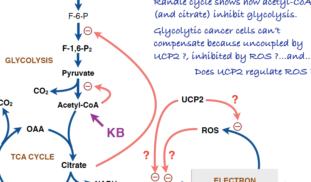Please wait...
About This Project
We've identified that ketone bodies, i.e. fuels in the bloodstream that result from a very low carbohydrate diet, metabolically inhibit growth of 7 cancer cell lines in cell culture, but not 3 normal cell types. Future cancer treatments using diet could become more effective and less toxic. We recently posted this project on Experiment requesting funds for supplies. We need salary for our superb technologist, as the NIH has not funded us, as they are committed to drug therapies.
More Lab Notes From This Project

Browse Other Projects on Experiment
Related Projects
Disrupting cancer cell signaling through drug discovery
Most cancer-related deaths are caused by metastasis, the spread of cancer cells to distant tissues. This...
CaniSense– AI-powered blood test for early cancer detection in dogs
Cancer is the leading cause of death in dogs, yet no reliable methods for early screening exist. At testblu...
Shutting down cancer’s recycling system with exosome-based therapy
Pancreatic cancer is one of the deadliest cancers because its cells survive by recycling their own components...





